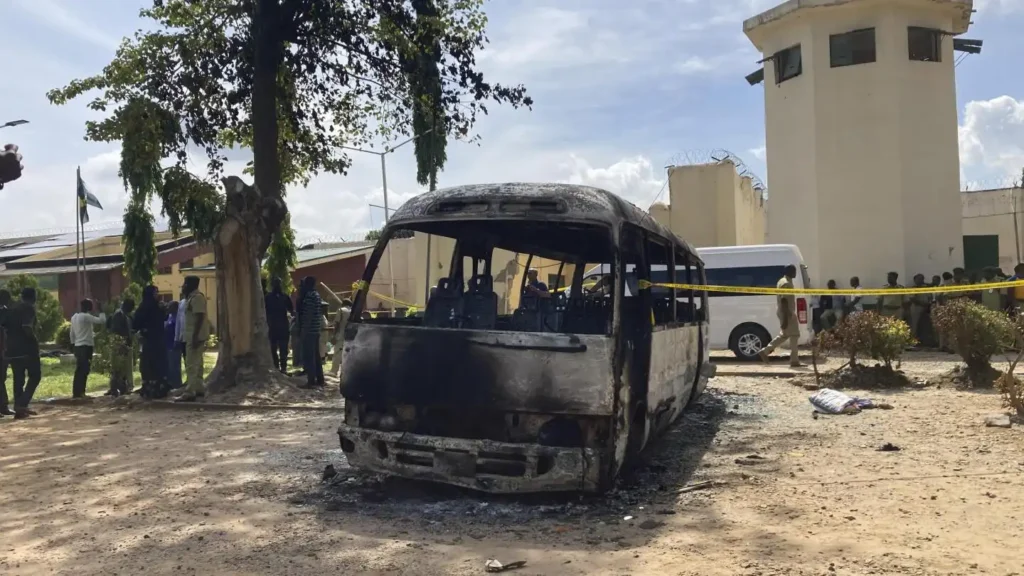Nigeria faced a major national security breach when insurgents affiliated with the Islamic State West Africa Province (ISWAP) executed a calculated assault on the Kuje Medium Security Custodial Centre, located just outside Abuja. Armed with explosives and assault weapons, the militants stormed the facility under the cover of night, demolishing parts of the perimeter wall and forcing entry into the prison complex. Within less than an hour, they successfully freed 879 inmates, including dozens of individuals with ties to Boko Haram and other extremist groups.
Militant Escapees Raise Alarm Nationwide
Authorities confirmed that 68 high-risk Boko Haram detainees were among those who escaped. While about 443 inmates were later recaptured or returned voluntarily, over 400 remained unaccounted for days after the incident. The jailbreak triggered panic across the capital region and sparked fears of renewed terror activity, especially given the strategic timing and boldness of the operation.

National Leadership Responds with Criticism and Urgency
President Muhammadu Buhari, visibly dismayed during a visit to the attack site, questioned how such a large-scale attack could be executed so close to Nigeria’s seat of power without prior intelligence alerts. He described the failure as “shocking” and indicative of serious lapses in Nigeria’s internal security mechanisms. The government launched an investigation into the breach, including reports suggesting possible collusion by prison staff and suspicious communication between officers and the attackers.
Broader Implications for Nigeria’s Security Outlook
Security experts view the Kuje jailbreak as a troubling indication of how far militant networks have expanded their influence beyond the North-East. The attack suggests a shift in insurgent tactics, targeting not just rural military posts but critical infrastructure in urban and federal zones. The coordinated nature of the assault reflects growing sophistication among terrorist factions and exposes vulnerabilities in Nigeria’s prison system, which has seen multiple jailbreaks in recent years.
Heightened Fears Ahead of National Elections
Coming just months before the 2023 general elections, the prison break raised further questions about the government’s ability to maintain law and order. Analysts warn that the presence of hundreds of newly freed militants could fuel future violence, especially if used to disrupt political stability or intimidate communities. Calls for urgent reforms in prison security, intelligence gathering, and counterterrorism strategy have intensified following the attack.
Conclusion
The Kuje prison break marked one of the most serious security incidents in recent Nigerian history, both for the scale of the escape and the direct involvement of terrorist networks. With over 400 dangerous fugitives still at large and national institutions under scrutiny, the July 5, 2022 attack remains a stark reminder of the pressing need to overhaul Nigeria’s security architecture.






